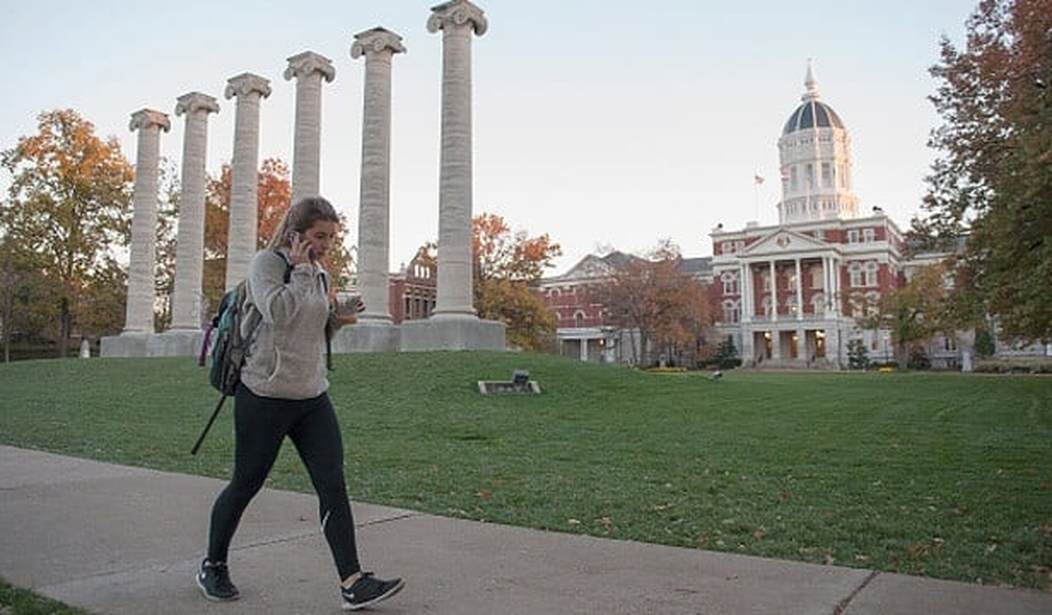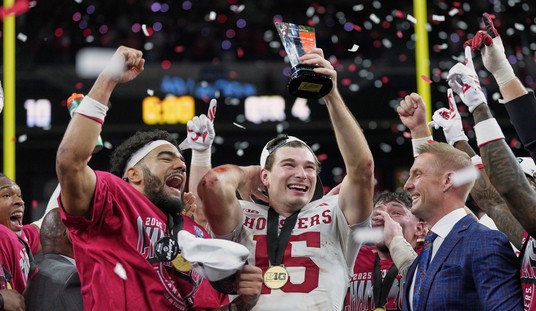When events at Yale University and the University of Missouri propelled college politics to national news, many conservatives were caught off guard by the power of “political correctness.” To those familiar with the works of C.S. Lewis, however, these events were of little surprise. Lewis’s The Abolition of Man explains both the confusion and the radical ideology on campuses today, and how Americans should respond to these dire threats.
What’s Happening on College Campuses?
In the September issue of The Atlantic, social psychologist Jonathan Haidt and Greg Lukianoff, president and CEO of the Foundation for Individual Rights in Education, described a peculiar movement on college campuses, which they named “vindictive protectiveness.”
Haidt and Lukianoff cite Harvard Law Professor Jeannie Suk, who wrote in The New Yorker about law students demanding their professors not even teach rape law — and in one weird case even to avoid using the word “violate” (as in “that violates the law”) — because it may cause students distress. This culture of overreaction is being institutionalized, as demonstrated by demands for the resignation of Yale’s Silliman College masters Erika and Nicholas Christakis for an allegedly insensitive email about Halloween costumes.
As Haidt and Lukianoff explain, “a claim that someone’s words are ‘offensive’ is not just an expression of one’s own subjective feelings of offendedness. It is, rather, a public charge that the speaker has done something objectively wrong.”
The idea of “microaggressions” — small actions or word choices that seem to have no malicious intent but are thought of as a kind of violence nonetheless — twists the objective idea of being “offensive” into a subjective charge on behalf of someone claiming to be offended. Some campus guides denounce as a microaggression the very act of asking an Asian American or Latino American “Where were you born?” because this implies that that person is not a real American.
The craziness of this new morality may seem unprecedented, but C.S. Lewis warned of something similar in his 1944 book The Abolition of Man.
The Abolition of Man
Lewis wrote The Abolition of Man to warn people about the corrosive effects of subjective morality. He starts out by attacking a children’s book which teaches that judgments of value are not objective, but only statements about the speaker’s feelings.
By contrast, Lewis argues that morality is fundamental to humanity. He traces the principles of conscience, the reasoning behind calling something “right” or “wrong,” throughout different cultures and religions, from ancient Rome to Christianity, to Hinduism, and Buddhism. While many attack this “traditional morality,” it is the building block for all moral values, and such principles as the Golden Rule — “do as you would be done by” — are nearly universal among men.
Lewis admits that this universal moral law has many aspects and can be improved — as with the discovery that slavery is wrong and the movement to abolish it — but says that any attempt to build morality on a separate basis will fail.
Nevertheless, teachers — and especially university professors and students — try to present new moralities, more “in fashion with the times.” To this, Lewis responds, “There has never been, and never will be, a radically new judgement of value in the history of the world.”
While some people may argue (for instance) that a man may steal from his neighbor if he will otherwise starve to death, they are not really ignoring conscience but focusing on one aspect of universal morality while minimizing another. “What purport to be new systems [of morality] all consist of fragments from [conscience] itself, arbitrarily wrenched from their context in the whole and then swollen to madness in their isolation,” Lewis explains.
Nevertheless, even these “alternate moralities” rely on conscience to give them validity. The “vindictive protectiveness” on college campuses may trample on free speech or the pursuit of truth, but it does so in the name of conscience, which warns people not to harm others. This morality is not, strictly speaking, a new morality, but a twisted form of the original. It is not amoral or evil, but warped and mistaken.
“Vindictive protectiveness” minimizes the value which traditional morality (and arguably conscience itself) places on the pursuit of truth. To nearly all scholars who have gone before, the pursuit of truth is worth being offended or having your feelings hurt. Students today seem to disagree.
Views of justice provide further evidence that “vindictive protectiveness” is a warped morality. In the name of equality, campus culture elevates the importance of some groups over others, and silences dissenting opinions in favor of groups that are seen as “underprivileged.”
Next Page: How did we get here?
How Did We Get Here?
In addition to helping conservatives understand campus morality, Lewis’s book also explains how an education in subjective values can create this lopsided system. The Abolition of Man discusses two very different kinds of education — one closely connected to objective morality and one which considers itself superior to a morality which it considers subjective.
“In the older systems both the kind of man the teachers wished to produce and their motives for producing him were prescribed by [conscience] — a norm to which the teachers themselves were subject and from which they claimed no liberty to depart,” Lewis explains. “They did not cut men to some pattern they have chosen,” but rather “they initiated the young neophyte into the mystery of humanity which over-arched him and them alike.” It was merely “old birds teaching young birds to fly.”
The newer system, by contrast, regards morality as flexible and unnatural. According to this understanding, “judgements of value are to be produced in the pupil as part of the conditioning.” The new teachers — whom Lewis calls the Conditioners — “know how to produce conscience and decide what kind of conscience they will produce.”
The recent history of higher education follows a similar trajectory. As Ross Douthat explained in the New York Times, collegiate education rejected traditional morality to embrace scientific efficiency, and then fell prey to a new, more destructive, form of morality.
“Between the 19th century and the 1950s, the American university was gradually transformed from an institution intended to transmit knowledge into an institution designed to serve technocracy,” Douthat explained. Religious foundations were stripped away, classical curriculums replaced by specialized majors, and professors transitioned from instruction to research. As a result, the university lost “the traditional sense of community, mission, and moral purpose.”
The student radicalism of the 1960s aimed to destroy the traditional moral footing of the university, but it also sought a “kind of remoralization.” The new morality focused on the anti-war and civil rights movements, feminism, environmentalism, LGBTQ activism, and a laundry list of “social justice” causes.
When “political correctness” emerged in the 1990s, “left-wing pieties dominated official discourse, but the university’s deeper spirit remained technocratic, careerist and basically amoral.” Today, however, students are revolting against the imbalance — demanding full institutionalization of liberal values at the expense of the university’s technical and scientific expertise.
In response to what Douthat calls “a strange blend of [being] pampered and exploited,” college students present the twisted morality of “vindictive protectiveness” as a way to fill the moral gap in the university. They lash out against perceived injustices, but with a morality that perpetuates injustice and destroys freedom of inquiry.
As David French explained in National Review, “the same secular-progressive movement that fought for free speech in the Sixties wrote the first speech codes in the late Eighties and then raised the Millennial social-justice warriors who are now turning on their parents’ generation as insufficiently faithful to the cause.”
Lewis warned that, for the Conditioners, “their skepticism about values is on the surface: it is for use on other people’s values; about the values current in their own set they are not nearly skeptical enough.” This double standard has come to college campuses. As French explains, “freedom is useful to put the right people in power — after that, it’s a threat.”
Next Page: Persons without chests.
Persons Without Chests
Modern education, Lewis warns, aims to produce “Men without Chests,” by which he means men and women with a deformed understanding of morality. Plato, Aristotle, and St. Augustine argued that the goal of education was to grow a young person’s conscience, so his moral understanding conformed to reality.
“The little human animal will not at first have the right responses,” Lewis explains. “It must be trained to feel pleasure, liking, disgust, and hatred at those things which really are pleasant, likeable, disgusting and hateful.” The desires and passions of the gut must be mastered by the reason and knowledge of the head. Classical education sought to improve the heart — the sentiments and passions which bring appetite into conformity with right reason.
“The Chest-Magnanimity-Sentiment — these are the indispensable liaison officers between cerebral man and visceral man.” Lewis even claims this spirited element may be what makes us truly human — “for by his intellect he is mere spirit and by his appetite mere animal.”
Modern education, by contrast, teaches the young to debunk morality and follow their own course. It produces what may be called “Men without Chests,” men and women without the grounding in right response to the reality which makes it possible to live a good life.
Instead, they elevate their feelings of being victimized and offended into claims for illegitimate power. Rather than controlling their feelings and using their minds to understand what others are saying, they claim these words are aggressions and demand apologies. Morality abhors a vacuum, and if children are not taught to discover objective right and wrong they will create their own values — and more often than not, use those values to grasp for power.
These Men — or “Persons” as they would correct Lewis — without Chests now haunt the halls of the university. They demonstrate our country’s urgent need to return to a traditional understanding of morality, and seek to educate our students rather than coddle them.









Join the conversation as a VIP Member